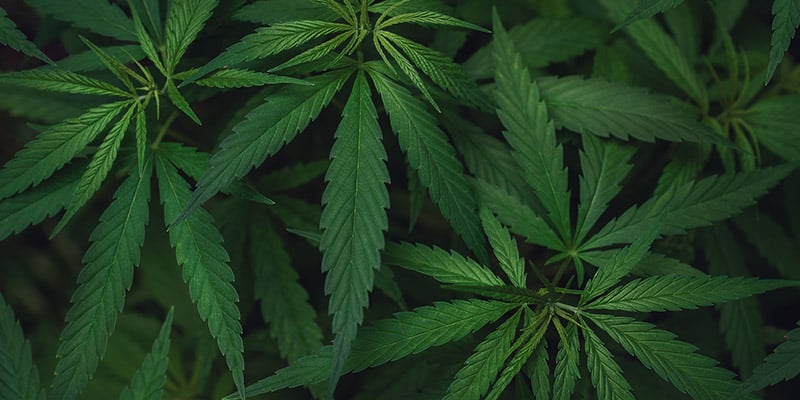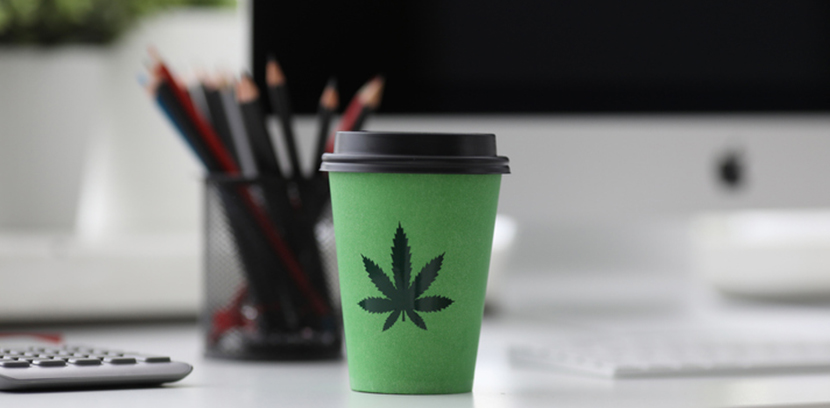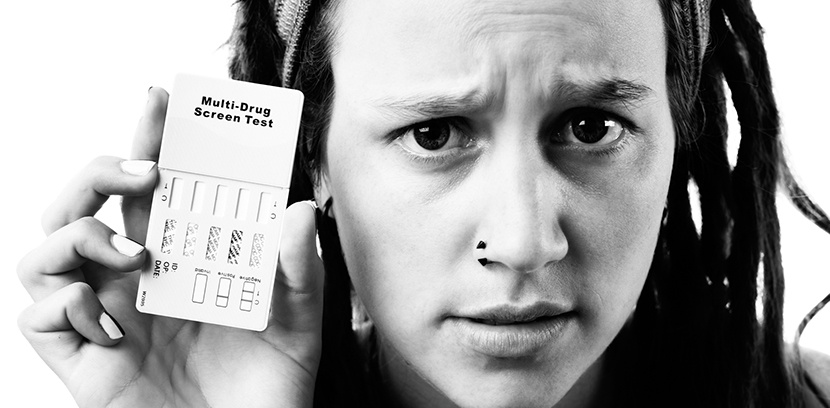Background Screening and the Legalization of Marijuana

*Note: This post has been updated from its original post date of November 10, 2016.
As of September 2022, 19 states and Washington D.C. have passed broad legislation for the legalization of marijuana for recreational use and 37 states plus D.C. for medical use. States that now allow adult citizens to smoke weed include Alaska, Arizona, California, Colorado, Connecticut, Illinois, Maine, Massachusetts, Michigan, Montana, New Jersey, New Mexico, New York, Nevada, Oregon, Rhode Island, Vermont, Virginia and Washington. Washington D.C., Oregon and some U.S. cities have approved the decriminalization of psychedelic mushrooms and Oregon went further, decriminalizing small amounts of cocaine, meth and heroin. Other states continue to pass laws allowing marijuana for medical use. This list may not be comprehensive and could be outdated as more legislation is passed. We will continue to update when possible.
These results may have employers concerned about background screening and marijuana use on the job. Here are some things to consider.
Full List of States and their Marijuana Laws
The list below presents the states with marijuana legalization and the details as of September 2022. In the states that have legalized recreational use, marijuana is regulated the same as alcohol. The research seems to show that states that allow possession of small amounts go on to later pass laws allowing the legalization of recreational use.
Let's also detail the difference between legalization and decriminalization. Legalization makes something legal, meaning an individual doesn't need to hide their buying, selling or possession of the substance. Decriminalization, on the other hand, means that criminal penalties are no longer in effect if an individual is found with the substance. They may still face a small fine, however. Even more complex than that is the use of CBD or hemp compounds, with or without THC.
- Alabama - Medical marijuana is permitted for certain qualifying conditions only.
- Alaska - Medical and Recreational use. Must be 21 to grow and use. Not allowed in public places, while driving or driving under the influence. Employers are allowed to ban marijuana use, transportation, possession, sale, growth, or transfer of marijuana.
- Arizona - Medical and Recreational use. Must be 21 to grow and use. Not allowed in public places, while driving or driving under the influence. Proposition 207, passed in November 2020, allows those with marijuana-related crime convictions, such as possession, consumption, cultivation, and transportation, to petition for the expungement of their criminal record starting on July 12, 2021.
- Arkansas - Medical use as of November 2016. Prohibited near or on the property of schools and childcare centers, correctional facilities, while driving, and in public places. Learn more.
- California - Medical and Recreational use. Must be 21 to grow and use. Not allowed in public places, while driving or driving under the influence. Possession at a school or daycare where children are present is illegal. Buying recreational pot from dispensaries began 1/1/2018 but not allowed to be sold between 10 pm and 6 am. Fresno and other cities are banning the sales for recreational use. California is also one of seven states that protect workers' rights to use recreational marijuana.
- Colorado - Medical and Recreational use. Must be 21 to grow and use. Not allowed in public places (unless permitted), while driving or driving under the influence.
- Connecticut - Medical and recreational use. Learn more. Connecticut is also one of seven states that protect workers' rights to use recreational marijuana.
- Delaware - Medical use. Decriminalized, no jail time, for possessing small amounts. Recreational marijuana law has been passed by the Delaware House and Senate but vetoed by the governor.
- Florida - Medical use legislation passed in June 2017. Patients and caregivers must be 21 and over. Learn more.
- Georgia - Medical use.
- Hawaii - Medical use.
- Idaho - CBD oil with 0% THC is legal for Medical use. There is a push for legalization but it failed to make the November 2022 ballot.
- Illinois - Medical and Recreational use (as of June 2019).
- Indiana - CBD oil with 0.3% THC is legal for any use. There is a push for legalization.
- Iowa - CBD oil with less than 3% THC is legal for Medical use. There is a push for legalization through a Constitutional amendment.
- Kansas - CBD oil with 0% THC is legal for any use. There is a push for legalization and to get it on the ballot by November 2022.
- Kentucky - CBD oil for Medical use. There is a push for the legalization for medical use. Learn more.
- Louisiana - Medical use. There are other related bills that go into effect as of August 2022.
- Maine - Medical and Recreational use. Must be 21 to grow and use. Not allowed in public places, while driving or driving under the influence.
- Maryland - Medical use. No jail time for possessing small amounts.
- Massachusetts - Medical and Recreational use. Must be 21 to grow and use. Smoking is not allowed in public places. Sale is prohibited until regulations for edibles are completed. Retail pot shops to open in July 2018. Employers are allowed to prohibit smoking it in the workplace. Local governments are allowed to restrict use and sale in public buildings or near schools. Learn more. Some Massachusetts landlords may also prohibit smoking pot since it is still federally restricted.
- Michigan - Medical and Recreational use. Must be 21 to grow and use. Not allowed in public places, while driving or driving under the influence. Possession of more than 2.5 ounces in public is prohibited. Learn more.
- Minnesota - Medical use. No jail time for possessing small amounts.
- Mississippi - Legal for Medical use with a prescription passed in November 2020 and was overturned in 2021. Learn more about 2022 legislation.
- Missouri - Medical use only.
- Montana - Medical use. Recreational use legislation passed in November 2020 and went into effect October 1, 2021. Must be 21 to grow and use. Not allowed in public places (unless permitted), while driving or driving under the influence. Montana is also one of seven states that protect workers' rights to use recreational marijuana.
- Nebraska - Decriminalized but still illegal.
- Nevada - Medical and Recreational use. Must be 21 to grow and use. Not allowed in public places, while driving or driving under the influence. Employers are allowed to ban in the workplace. Nevada is one of seven states that protect workers' rights to use of recreational marijuana.
- New Hampshire - Medical use.
- New Jersey - Medical use. Passed legislation for legalization for Recreational Use in November 2020. They have expanded the laws as of late 2020/21. New Jersey is also one of seven states that protect workers' rights to use recreational marijuana.
- New Mexico - Medical and recreational use for adults 21 and older. Learn more.
- New York - Medical use. No jail time for possessing small amounts. New York is also one of seven states that protect workers' rights to use recreational marijuana.
- North Carolina - CBD oil is legal for Medical use. Decriminalized for small amounts. Learn more.
- North Dakota - Medical use.
- Ohio - Medical use. No jail time for possessing small amounts.
- Oklahoma - Medical use.
- Oregon - Medical and Recreational use. Must be 21 to grow and use. Not allowed in public places, while driving or driving under the influence.
- Pennsylvania - Medical use.
- Rhode Island - Medical and recreational use. Rhode Island is also one of seven states that protect workers' rights to use recreational marijuana. Learn more.
- South Carolina - CBD oil with less than 0.9% THC is legal for Medical use. Possession is a misdemeanor.
- South Dakota - Legislation passed in November 2020 to legalize for Recreational and Medical use. It was overturned by the courts and never went into effect. Legalization is again on the ballot for November 2022.
- Tennessee - CBD oil with less than 0.9% THC is legal for Medical use. Possession is a misdemeanor.
- Texas - CBD oil with no more than 0.5% THC and no less than 10% CBD is legal for Medical use. Cite and Release applies to possession in Austin, Dallas, Houston, San Antonio and residents of Travis County. Learn more.
- Utah - Medical use.
- Vermont - Medical and Recreational use. Must be 21 to grow and use.
- Virginia - Decriminalized for possession of up to one ounce. Learn more.
- Washington - Medical and Recreational use. Must be 21 to use. Must be 21 and require the drug for medicinal purposes to grow. Not allowed in public places, while driving or driving under the influence.
- West Virginia - Medical use legalized for cannibis-infused products.
- Wisconsin - CBD oil legal for Medical Use. Misdemeanor for first offense and felony for more.
- Wyoming - CBD oil legal for Medical Use. Misdemeanor.
- Washington DC - Medical and Recreational use. Must be 21 to grow and use. Not allowed in public places, while driving or driving under the influence.
Employer Rights
In some cases, the laws explicitly note an employer's right to prohibit employees from using, possessing or selling pot in the workplace. Even if they don't, employers still have rights when it comes to marijuana in the workplace.
Under federal law, marijuana use is considered a Schedule 1 Substance under the Controlled Substances Act. The DEA isn't actively getting involved in the approved laws in these states, however, the Justice Department is allowed to step in if states don't regulate use or if safety issues emerge. A recent announcement by Attorney General Jeff Sessions included a withdrawal of federal guidelines that would limit prosecutions of businesses that sold pot legally. This is an ongoing challenge for more states passing their own legalization laws.
Drug Screening
Employers are not allowed to do random drug screenings unless there is reasonable suspicion of drug use or if the employee is regularly operating heavy machinery. Reasonable suspicion includes slurred speech or erratic behavior, another employee reporting drug use, evidence of drugs sold or possessed in the workplace or a workplace accident.
Drug testing in the workplace is generally regulated at the state rather than the federal level unless there are federal employees. Most other times, a drug screening policy is at the discretion of the employer and employees must be educated on clear, written policy about drug use in the workplace.
Drug-screening program best practices: Drug Screening FAQ for Human Resources Professionals.
The legalization of pot may mean that more are willing to smoke in their own free time but that does not mean that employers must give up their rights to a fair and safe workplace. When employers have legitimate reasons for suspecting drug use, they can certainly screen the employee. If marijuana drug use shows up, the employer has no way of knowing if the drug was used on the job or even weeks before. With an established and clear drug policy against drugs, unless protected by the state's legislation, the employee can still be terminated legally.
Share this
You May Also Like
These Related Stories

States Changing Pre-Employment Drug Screening for Marijuana

Drug Screening FAQ for Human Resources Professionals


